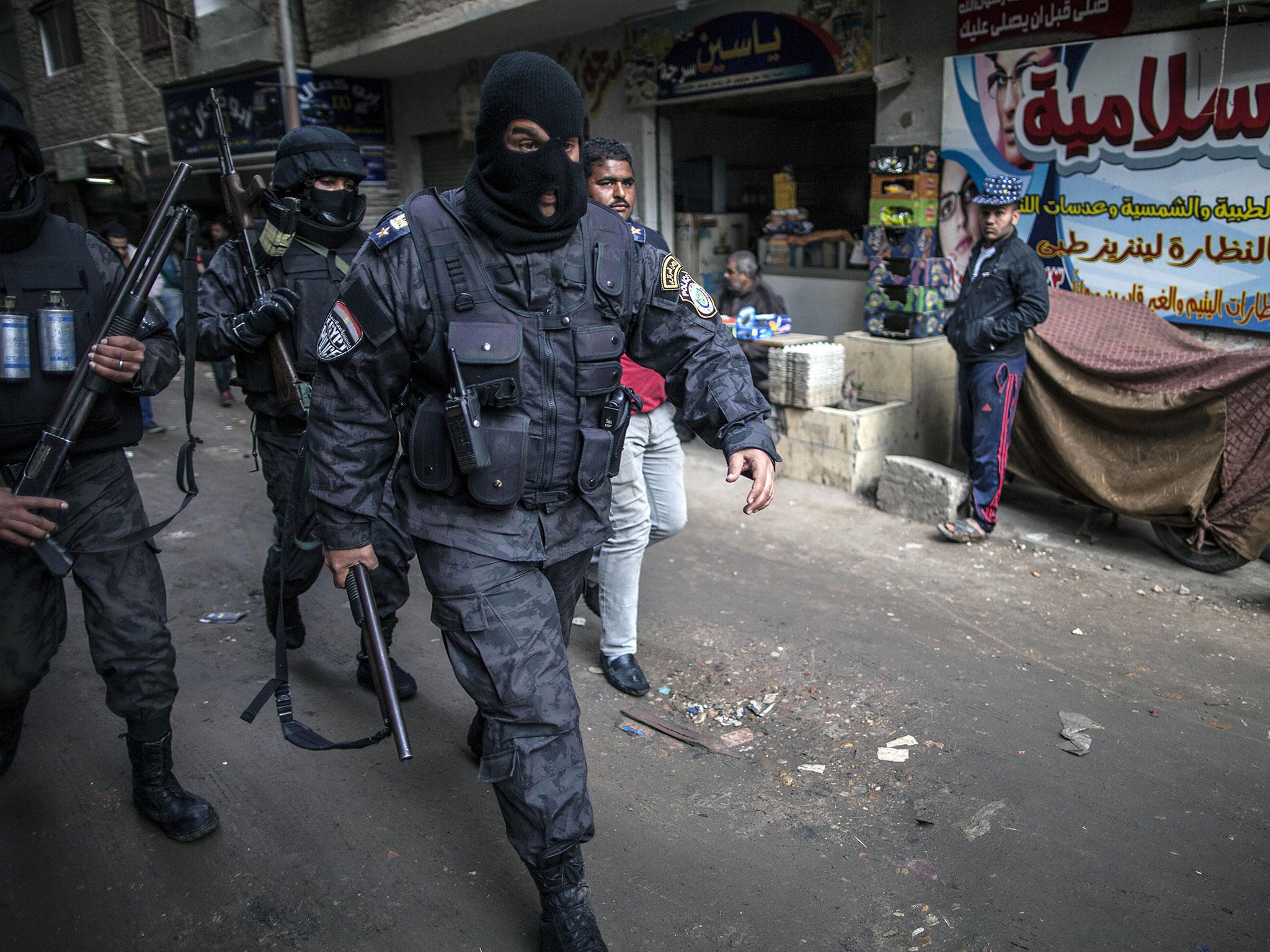Donald Trump is the latest in a long line of western leaders queuing up to meet Egypt's al-Sisi
There are 60,000 political prisoners in Egypt and up to 10 men have been forcibly disappeared by security forces. When will the West confront this nation’s human rights abuses?

During the 2011 Egyptian revolution, Abdel Fattah al-Sisi – Egypt’s then head of military intelligence – directed that forced virginity tests be carried out on women in Tahrir Square to “protect” them against allegations of rape. Seventeen women were detained, strip-searched, given electric shocks, forced to have the examination and then declared not to be virgins.
Instead of being tried before a court, in July 2013 al-Sisi overthrew the government and became president. It turns out those forced virginity tests were just the beginning of a rule of terror he would inflict over all Egyptians who opposed him – some 60,000 political prisoners languish behind bars in Egypt’s rat-infested prisons. Many have been tortured to death and denied medical attention whilst children have been beaten, electrocuted and “exposed” to the public as terrorists.
Despite the crackdown on civil society in Egypt, the abuses carried out in the country are well-documented. Why, then, are a host of western leaders, who continuously stress their commitment to democracy and the rule of law, queuing up to meet with the military strongman? On 3 April Donald Trump will become the latest head of state to receive al-Sisi when he visits Washington; Italy, France, Germany and Britain have all hosted the Egyptian president and with this offered tacit endorsement to his regime.
There are a number of reasons why al-Sisi – or the office he holds – is considered strategically important, not least his commitment to fighting Isis. He is tough on terror at home and in the region, he says; so tough, in fact, that security forces recently arbitrarily detained and forcibly disappeared up to 10 men, most likely killed them, then staged a counter-terrorism raid to cover it up. But he has attracted limited criticism, for all manner of human rights abuses are carried out in the name of the war on terror.
What really set the bar for the impunity which circles the Egyptian government will always be the August 2013 massacre when some 1,000 Egyptians were killed in Rabaa Al-Adawiya Square as they protested against al-Sisi’s overthrow of the country’s first democratically-elected president Mohammed Morsi. Shortly afterwards the US briefly broke off, then re-established military aid to Egypt; France sold fighter jets to the country whilst the UK, who had suspended a number of military licences, reinstated several of these.
The message was clear: Egyptian security forces could do as they pleased and would attract little international condemnation, for vested interests in the country override everything else. To this day, not one member of the army or security forces who took part in the massacre has paid for their crimes.
In February 2011, former Egyptian President Hosni Mubarak’s resignation was met with a roar of approval by protesters in Tahrir Square and 24-hour media coverage. But last week the news that Mubarak was released from the comfortable military hospital where he was being detained slipped out relatively unnoticed. This is a man who incited the killing of 900 protesters during the 18-day uprising, sending camels and horses charging into the crowds of demonstrators, only to be freed from prison after just six years.
Western countries have the power to cast heads of states out into the cold, if they choose to do so. In 2002, the EU imposed sanctions on Zimbabwean President Robert Mugabe and his wife for electoral fraud and human rights abuses. In 1997, then US president Bill Clinton placed a trade embargo on Sudan and froze Omar al-Bashir’s assets, again over human rights abuses.
But the decision on which leaders to take a stand against is largely arbitrary. It depends not just on such violations of rights, but on how hostile these states are to western interests.
As Mubarak settles back into his comfortable home in Heliopolis, thousands of pro-democracy activists are still detained in the worst of conditions. But for as long as the international community stay silent on human rights abuses in Egypt, authorities there will continue to commit them. Ultimately, it is the Egyptian people who pay the highest price for the West’s endorsement of Al-Sisi’s regime.
Join our commenting forum
Join thought-provoking conversations, follow other Independent readers and see their replies
Comments
Bookmark popover
Removed from bookmarks